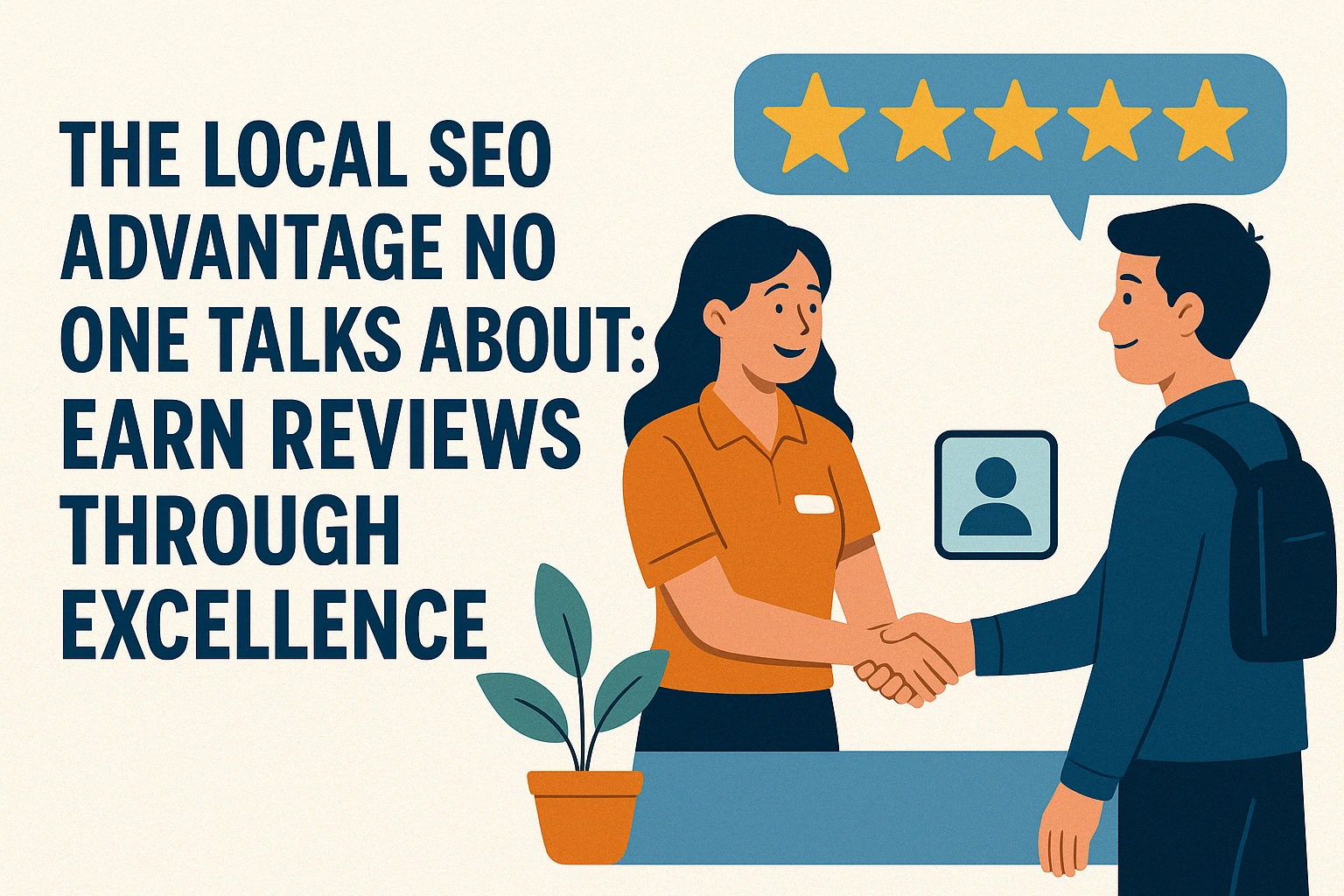A practical guide for business owners and consultants who want more 5-star reviews, stronger rankings, and better leads without gaming the system.
A while ago, I came across a post from Darren Shaw , one of the most respected voices in local SEO.
In his post, he shared a concern from a business owner:
“I don’t want to ask for reviews because… what if I get a negative one?”
Darren’s response was spot-on:
“If you ask every customer for a review, your ratio of positive to negative reviews should be at least 30 to 1. If you never ask, you’ll usually only get reviews when people are unhappy.”
That post resonated because it validated something I’ve believed and practiced for years:
If you focus on excellent service, asking for reviews becomes easy.
This Forms The Foundation of My Approach
It’s not just what I do in my own businesses, it’s something I emphasize with my clients too. When we work on their local SEO strategy, this idea of service-led review generation becomes a core part of the playbook.
Clients who’ve applied this approach consistently see a steady stream of 5-star reviews, improved local rankings, and most importantly more qualified leads (Of course this doesn’t work in isolation as you must also get the other basics right).
Why Excellence Makes Everything Easier
For me, it’s simple: If your business is built on a culture of excellence, asking for reviews isn’t something to be scared about. I mean if you have done a good job, asking a review should a natural thing to do without any form of fear and hesitation.
Most (serious) businesses are often very interested in reviews and rightly so.
They influence:
- Trust
- Map Pack rankings
- Clicks vs competitors
- Lead conversion
But the real question is: Why would someone want to leave you a review in the first place?
The answer? Their experience.
Start With Culture
This approach only works because we’ve built and taught a mindset around operational and service excellence.
Here’s what I train my teams and clients to align around:
- Understanding your ideal customer profile (ICP)
- Delivering an experience based on what excellence means to the customer
- Creating a repeatable system to ensure consistency
Excellence isn’t just a tagline, it’s also an important framework which is easy to overlook. And when it’s in place, reviews are no longer a “marketing tactic.” They become a reflection of your organizational culture.
Our Proven Review Collection Process
After delivering a service, here’s the exact sequence we use (and recommend):
- Ask if the client was satisfied: 👉 “Were you happy with the service we provided today?”
- If yes, follow up with a rating question: 👉 “On a scale of 1 to 5, how would you rate your experience?”
- If the rating is strong, ask for the review: 👉 “Would you consider leaving us a Google review? It really helps others find us.”
Simple. No pressure. Just a human conversation and this has worked for my clients and my own businesses.
Feedback = Growth
If a client isn’t happy, we don’t just accept it and move on. We ask why, gather insights, and use that data to refine our delivery process.
That’s what I also train clients to do because bad reviews aren’t just problem and when used effectively, they provide useful insights.
Local SEO Built on Real Value
- Review recency
- Review volume
- Review consistency
But what powers those metrics? Customer experience.
Even people can fake reviews and Google has been taking down same, honesty remains the best policy and it’s different when you earn it through service.
So when I say that excellent service is the best local SEO strategy, I mean it.
Because when the delivery is right, the reviews come. And when the reviews come, visibility follows. And when visibility increases, so do leads.
👤About the Author
Nelson Isibor is an SEO Consultant & Founder of nelsonIsibor.com, helping businesses across Africa and beyond grow their digital visibility through results-focused SEO strategies. With over five years of experience, his work is a combination of deep search expertise with conversion psychology and measurable KPIs.




